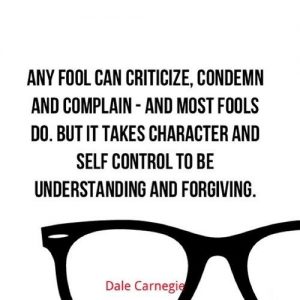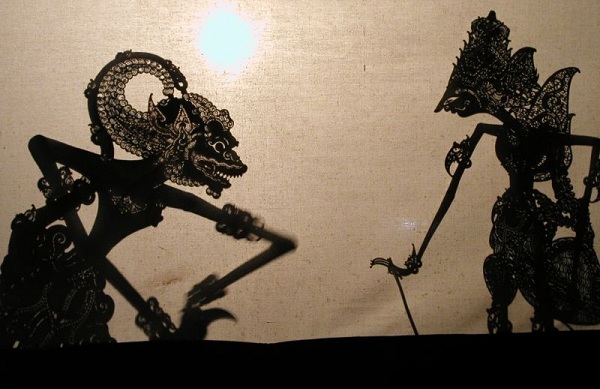Modern psychology says that being judgmental toward others is a psychological defense mechanism: we reject in others what we can’t accept in ourselves. It’s an insightful discovery but I believe it’s a short sighted one. Our inner critic has much deeper roots, those that hide way beyond the ordinary observation of the ego mind.
Ever since I was a kid I was known for having “a bit” of a wild temperament. Naturally, life was generous with painful but valuable lessons. After all, no matter how high you fly, if your wings are made of ego you’ll eventually crash hard face down into a big pile of cow shit. Basic laws of the mighty Universe.
In addition, my dad was a total ass to my mom. I mean, he loved her but his was awful to her. Imagine a young boy growing up watching all that and you’ll get a sense of the type of “manhood” lessons I was ingrained with since childhood. After going through all this trouble myself I now notice other men struggling to keep their relationships together, all due to their fathers’ absence of basic skills on how to treat a lady and accept her with all her strengths and weaknesses.
Anyways, if you love exploring your inner world like I do then you have also done some soul searching, drilling into the depths of your heart asking one simple question – how can I criticize less? And I feel we have to frame it this way because it would be virtually impossible for one (masterful in the art) to just ‘stop‘ criticizing. Gotta be realistic, right? After all, making a mere wish to be something completely different from what you were your entire life is as effective as drinking more beer for a hangover remedy. What we need is a system, a process that will not just remove a bad habit but replace it with a good one. I hear this strategy is also used by all effective drug addiction programs. A common sense advice that I always liked was this:
First, identify a specific behavior you want to work on and illuminate it with mindfulness. In simple terms – we must become mindful that we have this character trait which is not only undeserving us but hurting others. After all, nobody wants to put up with an ass who lowers others self-esteem for fun.
Second – we must have a strong wish to do something about it. And I mean, want it bad, more than anyone else wants it for us. We sincerely have to want to change.
Third – we have to have the methods for changing. That means understanding some inner engineering and how we’re wired. Then we must pick the appropriate tools or antidotes to deal with the problem.
Fourth – we must diligently take action and be very, very patient.
Understanding what hides behind our inner critic is as crucial as any other point here. That is because criticism per se is nothing but an expression of deeper processes.
So, if you took a moment to ponder… What do you think drives your inner critic? And why is it so that when it is driven it feels kind of good? What kind of sorcery is that?
In essence, when we criticize someone we assume a few things:
I know better than they;
I can do better than they.
It can take many “justified” forms like, “I just want to help you,” or “You poor you, you’re so dumb you’re hurting yourself and I just can’t watch; my compassion is so intense, I have to teach you.”
But realistically there are is one main driving force to a demeaning criticism – a deeply embedded ego, shrouded in layers and layers of “intelligent” justifications and its well disguised manifestations such as pride and impatience.
Ironically, the latter two have become the total norm in our culture. Pride is fostered and encouraged – “You’re the best, Johny!,” while everything else is catered to our impatience. Our culture just breeds and feeds that inner critic, evidenced by many television shows that allows us to recline in our ‘lazy boy’ and silently render our judgement during TV shows where various dancers and singers perform for their own chance of five minutes of fame.
So, how do we stop criticizing others when it is driven by one of the most powerful forces in mother nature? Wisdom traditions offer a very clear path – we develop more empathy and patience, the direct opposites that drive our inner critic in the first place.
Whaaaaat? “Empathy…? Patience…? Is that all you got, Tadas? I thought you had better tricks up your sleeve than this boring Ganges worshiper fluff. Well, OK so what’s the deal, how do I stop being critical?”
Actually, you can read a library books and you’ll rarely find a profit or a yogi rendering advice that starts with “You have to stop…” They all use such words like “grow this, develop that,” demonstrating that we can not stop manifestations of ego by merely “wanting” to do so.
Furthermore, the action has to start from within. Buddha taught: “Look not to the faults of others, nor to their omissions and commissions, but rather look to your own acts, to what you have done and left undone.” He further taught great things about looking inward and transcending egomania by developing the mind and working with the direct causes of ignorance and suffering.
But hey, this one is about basic advice, right? So here it is: in order to stop being critical you must identify what drives your inner critic and then apply appropriate remedies to quiet it down. Once you see that it is your pride and impatience then you must slowly but diligently set in place new habits to take over the bad ones. You must practice till you heart is more tender and compassionate.
 First signs that your practice is successful will be when you become more magnetizing to others. With time you’ll naturally develop a more encouraging, more patient and pleasant personality. People will want to hang out with you because they feel good around you!
First signs that your practice is successful will be when you become more magnetizing to others. With time you’ll naturally develop a more encouraging, more patient and pleasant personality. People will want to hang out with you because they feel good around you!
Is this a lot of work? Heck, yeh. But what’s the alternative?
What I do is work every day to soften my attitude and develop wisdom by studying and meditating. A soft heart and wise mind is not a weakness, it never was. On the contrary, I feel like I have a stronger backbone to do what’s right for myself and others. I am not as easily swayed with various opinions or led by strong emotions. There’s more space and more freedom. I love it and will work till the rest of my life to develop those traits. I hope you’re on the same path and if not yet then I invite you to go for it.
The methods for working with mind are vast and extensive and you have to find what works for you. There is one book that I can not recommend more. I have it in my Kindle as well as a hard copy and it is the only book that actually sits on my meditation altar. It is called The Path To Awakening – Seven Points of Mind Training by Shamar Rinpoche. This is not a one time read, at least I hope it won’t be for you. Every time you’ll read it you’ll discover something wonderful and more of it will permeate your heart. Most importantly – we must remember to practice! Enjoy.


 Letter to a Friend: “I am Always Angry, What is Wrong with Me?”
Letter to a Friend: “I am Always Angry, What is Wrong with Me?” How to Respond to Verbal Abuse When You Hate Fighting
How to Respond to Verbal Abuse When You Hate Fighting Can Anger Really Make You Sick as a Dog?
Can Anger Really Make You Sick as a Dog?